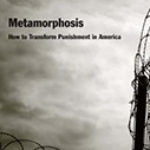Modern Slavery: A Global Perspective

Author: Siddharth Kara
Publisher: New York, NY: Columbia University Press, 2018. 360p.
Reviewer: Vanessa Bouché and Austin Boyles | October 2018
In his book Modern Slavery: A Global Perspective, Siddharth Kara aims to share with the world “the totality of what [he] know[s] about slavery, the full evolution of [his] thinking on the topic.” In the first chapter, he sets forth his own definitions of slavery and human trafficking, and in the remainder of the book he takes the reader around the world to demonstrate different aspects of trafficking globally, including sex trafficking in Nigeria, agricultural labor trafficking in the U.S., organ trafficking in India, and labor trafficking in the fishing industry in Thailand.
Kara skillfully chronicles his global adventures investigating the complexities and horrors of human trafficking, and writes a compelling book that reads like an excellent piece of investigative journalism. The problem, however, is that Kara claims to be a researcher, and this requires adherence to certain norms—including definitional clarity and consistency, methodological rigor, citing relevant scholarship, and following the procedures for ethical research conduct—that the author seems to violate throughout the book.
In the first chapter, Kara sets forth clear definitions of slavery and human trafficking. They are generally sound definitions that provide clarity in the ongoing debate about terminology and definitional ambiguity within anti-trafficking circles. His preference is to use the broader term “modern slavery” in favor of the narrower term “human trafficking,” hence, the title of the book. However, his definition of slavery requires “labor activity,” and although he did not define what constitutes labor activity, presumably selling one’s organ is not a form of labor activity. Nevertheless, Kara has an entire chapter on organ trafficking. He recognizes the potential problem with this. At the beginning of Chapter 4 on organ trafficking he attempts to justify its inclusion in a book on “modern slavery” by using a completely different definition of slavery than the one he set forth in Chapter 1. As a result, his initial commitment to definitional clarity is compromised. Throughout the book he uses various terms interchangeably, rather than thoughtfully and carefully as he seemed intent on doing in the first chapter.
A second problem arises in the author’s assumptions regarding the motivations of traffickers. He states in Chapter 1, “slavers are not cruel and exploitative simply for the sake of it,” but are motivated only by profit (p. 21). Yet, in his description of sex trafficking in Nigeria in Chapter 2, Kara describes the juju priest who enslaves Nigerian girls as a man motivated by something dark, spiritual, and intangible; the priest possessed a power that Kara admits feeling when he spoke to him. His experience with and description of the juju priest undermines his core assumption about traffickers being motivated by profit alone. Clearly, there is an element of power that motivates traffickers, and profit may be only a means to that ultimate end.
The quantitative and qualitative methodologies also lack rigor, explanation, and sound analyses. Kara derives various estimates of the total number of slaves globally, revenue produced per slave, etc., and provides minimal explanation for the numbers and methodology in the appendix. The numbers are extremely fuzzy and his methodology inconsistent and unreliable. Regarding his qualitative methodology, he basically does not have one. He provides a sample interview questionnaire in the appendix, but the ways in which he describes his encounters throughout his journey make clear that he did not adhere to these interview guidelines. He never explains his sampling methodology (if he had one), how he analyzed the qualitative data, or justifies why and what he selected to highlight in the book. From a scholarly perspective, the lack of methodological rigor begs the question as to whether this can be called research at all.
The author also falls short as a researcher by not grounding his work in extant literature or citing other scholarship. For example, Chapter 1 contained a comparative analysis of “old slavery” and “new slavery,” which Kara wrote about as though he was the first person to articulate these differences. But it was Dr. Kevin Bales who first made this comparison (in almost an identical manner) in 1999 in his seminal book, Disposable People: New Slavery in the Global Economy. Kara does not cite Bales. A second example is the author’s attempt to derive his own calculations for old slavery when there is an entire body of historical scholarship that has already done that. Why not stand on the shoulders of experts who have gone before you? On the other hand, he never fails to miss an opportunity to cite his own work. He explicitly references his own books, data, and statistics more than any others, as though his is the first and only research in this field. These types of self-promoting plugs saturate the book and frustrate the sophisticated reader who knows better.
Kara also acts less like a researcher and more like an investigative journalist by apparently not adhering to federal guidelines for ethical research conduct. He states in Chapter 1 that he “followed Institutional Review Board principles on human subject research at all times,” but never states that he actually received IRB approval for any of his interviews (p. 27). He claims to have expressed his “intentions and the purpose of the questions before asking for consent to speak, never asking questions without consent.” Yet, he recounts stories of his journeys into different parts of the world where he blatantly failed to do just that. It is not clear that this research was approved by an Institutional Review Board, rendering the ethics of the work as research questionable at best.
Additionally, the author claims that his work was bound by the two principles of “do no harm” and that “the least important aspect” of his research was his research (p. 27). Many of his experiences, however, also seem to have violated these principles. For example, in Nigeria Kara left a girl on the side of the road to be picked up later—a girl who had been recruited by the juju priest, who was leading him to the juju priest, and who had panicked and asked not to continue the journey. This is in a country that Kara himself described as “utterly toxic,” and lamented the idea of his car breaking down, leaving him stranded on the side of the road (p. 55). And yet, for the purposes of furthering his research, he left her behind, violating his own principle. He justified the decision by saying that the girl, who was sixteen years old, said she would be safe and told him to go on.
In short, this author wants the freedoms of a journalist while also having the credibility of an academic researcher, but he fails in his attempt to have it both ways. It should be called what it is, which is investigative journalism rather than academic research. Nevertheless, the book is exceptionally well written and makes for a holistically interesting read. The stories chronicled in Modern Slavery should be told all over the world. Siddharth Kara makes the issue real and personal, an important reminder that individual human lives are continuously being shattered by slavery today.
Dr. Vanessa Bouché, Associate Professor at the Department of Political Science, Texas Christian University and Austin Boyles, Texas Christian University


